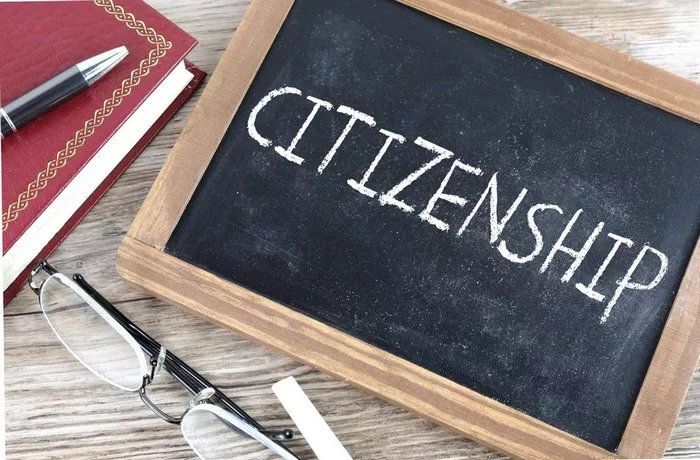In our increasingly interconnected world, the concept of citizenship is evolving. Dual citizenship, also known as dual nationality, is becoming more common as individuals seek to maintain ties to multiple countries for various reasons. While there are undeniable advantages to holding citizenship in more than one country, it is crucial to recognize and navigate the potential disadvantages that come with this status. In this article, we will explore the complexities and challenges of dual citizenship, offering insights into how individuals can address these issues effectively.
Acknowledge the Advantages
Before delving into the disadvantages, it’s essential to acknowledge the benefits that dual citizenship can provide. Dual citizens enjoy certain privileges such as ease of travel, expanded employment opportunities, and access to social benefits in both countries. They can live, work, and study in either country without needing special visas or residency permits, facilitating greater mobility and flexibility in their personal and professional lives.
Moreover, dual citizenship can foster a sense of cultural identity and belonging, allowing individuals to maintain connections to their heritage while embracing new opportunities abroad. This duality can enrich their lives, broadening their perspectives and enabling them to navigate diverse cultural landscapes with ease.
Explore Potential Disadvantages
While dual citizenship offers numerous advantages, it also presents unique challenges that individuals must navigate carefully. Below are some of the key disadvantages associated with holding citizenship in multiple countries:
1. Double Taxation:
One of the most significant concerns for dual citizens is the possibility of being taxed on their income by both countries. Each country has its own tax laws and regulations, which can lead to overlapping tax obligations and potential financial burdens. To mitigate this issue, individuals may need to seek guidance from tax professionals who specialize in international taxation. Additionally, tax treaties between countries can provide relief by preventing double taxation and allowing for foreign tax credits.
2. Military Service:
In some cases, dual citizens may be subject to military service requirements in both countries. This can pose a dilemma for individuals who hold allegiance to two nations but are obligated to serve in only one military. To address this issue, some countries allow dual citizens to fulfill their military obligations through alternative means, such as community service or financial contributions. However, individuals should be aware of their obligations and seek legal advice if necessary.
3. Complex Legal Situations:
Dual citizenship can complicate legal matters such as inheritance, property ownership, and child custody disputes. Different countries have varying laws and regulations governing these issues, leading to potential conflicts and confusion for dual citizens. For example, inheritance laws may differ significantly between countries, affecting the distribution of assets upon death. Similarly, child custody disputes may become more complex if parents reside in different countries with conflicting legal systems. Seeking legal counsel and establishing clear agreements can help individuals navigate these challenges effectively.
4. Increased Bureaucracy:
Maintaining dual citizenship often entails dealing with increased bureaucracy and administrative processes. This can include renewing two passports, filing taxes in multiple jurisdictions, and complying with different immigration requirements. The administrative burden can be time-consuming and stressful for individuals, requiring careful planning and organization to stay compliant with legal obligations. Utilizing online resources and seeking assistance from government agencies can streamline the process and alleviate some of the administrative burdens associated with dual citizenship.
5. Divided Loyalties:
One of the less tangible but equally significant challenges of dual citizenship is navigating divided loyalties. Dual citizens may feel torn between two countries, struggling to reconcile conflicting allegiances and cultural identities. This can create emotional and social challenges, particularly during times of political unrest or conflict between the two nations. Finding a balance between loyalty to both countries and embracing one’s multicultural identity is essential for dual citizens to navigate these complexities successfully.
Solutions and Resources
Despite the challenges, there are several strategies individuals can employ to manage the disadvantages of dual citizenship effectively:
Seek guidance from tax professionals specializing in international taxation to navigate potential tax implications and optimize tax planning strategies.
Consult legal experts who can provide guidance on complex legal matters such as inheritance, property ownership, and child custody disputes.
Stay informed about changes in immigration laws, tax regulations, and other relevant policies that may affect dual citizens.
Utilize online resources provided by government agencies and international organizations to access information and support services for dual citizens.
Join online communities and forums for dual citizens to connect with others facing similar challenges and share experiences and advice.
Conclusion
In conclusion, while dual citizenship offers numerous benefits, it also presents unique challenges that individuals must navigate carefully. By acknowledging the disadvantages and adopting proactive strategies to address them, dual citizens can successfully manage the complexities of living in a globalized world while embracing the opportunities that come with holding citizenship in multiple countries.


